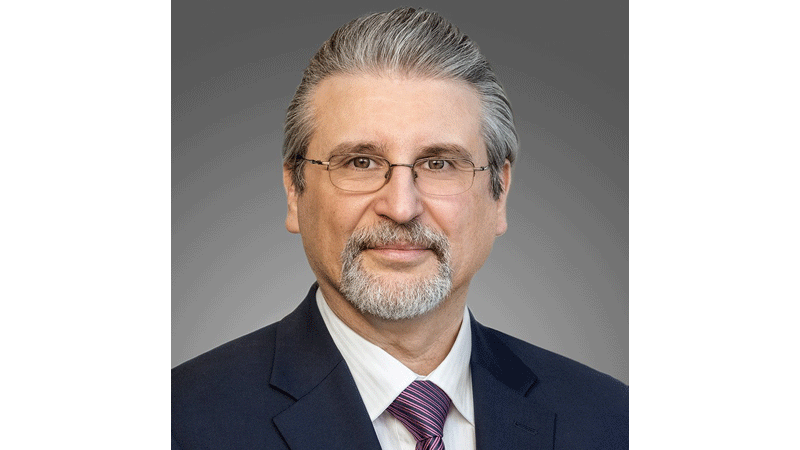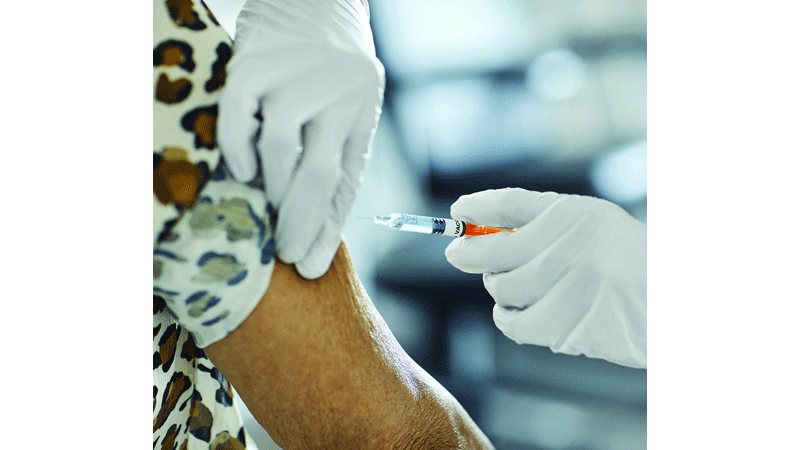‘Use it or lose it’: Governor urges faster COVID-19 vaccine process
Published 3:14 pm Friday, January 8, 2021
|
Getting your Trinity Audio player ready...
|
RICHMOND
Gov. Ralph Northam on Wednesday urged a more rapid pace in administering COVID-19 vaccines while also saying that effort would depend on its availability.
Amid a record 5,387 cases reported by the state health department Wednesday and a statewide seven-day positivity rate of 16.7%, Northam said freezers need to be emptied of the current supply of the vaccine, as it is still being rolled out to health care workers, first responders and residents of long-term care facilities during Phase 1A. He had a message on vaccine administration for health care providers, health departments, hospitals, clinics and pharmacies around the state.
“You use it or lose it,” Northam said. “So I want you to empty those freezers and get shots in arms. When you have vials, give out shots until they’re gone. No one wants to see any supplies sitting unused.”
Northam said no vaccines have had to be discarded to date, though at a vaccination event in Suffolk Wednesday for Suffolk Fire & Rescue emergency medical technicians and first responders, health officials scrambled, successfully, to find several additional people who qualified for one in Phase 1A after finding themselves with extra doses of the Moderna vaccine.
The state has received 481,550 vaccine doses, with less than 25% — 116,247 — of those doses having been given out as of Jan. 6. Just 2,204 people statewide have received both vaccine doses. In Western Tidewater, 1,093 people have received at least one dose — including 648 in Suffolk, 311 in Isle of Wight County, 78 in Franklin and 56 in Southampton County.
Northam outlined a goal of vaccinating 25,000 people per day, eventually getting to 50,000 per day until all 8.5 million people in the state have an opportunity to get the two-dose Moderna or Pfizer-BioNTech vaccines, or any other COVID-19 vaccines that get emergency Food and Drug Administration approval. He said the state currently is receiving about 110,000 vaccine doses per week and is off to a good start in vaccinating residents, but it needs to happen faster.
Northam said the state should be at 14,000 vaccinations per day in order to move into Phase 1B by the end of January. However, it has yet to reach that target since vaccinations began Dec. 15 — the most being 12,634 people Dec. 29.
State Health Commissioner Dr. Norman Oliver said there is a lag in reporting vaccinations, estimating that 35,000 to 55,000 doses delivered at hospitals have not been recorded in the database.
“As soon as we have the doses, our plan is to be able to ramp this up,” Northam said.
As part of this effort, Northam named Richmond and Henrico County health director Dr. Danny Avula as his “field general” in coordinating the statewide vaccine rollout. As vaccinations move forward, Northam said he would enlist the National Guard to help.
Oliver said the state has more than 2,000 providers that have been registered with the Centers for Disease Control and Prevention to administer vaccinations, and it has more than 120 memorandums of understanding with pharmacies around the state to provide them, along with federally qualified community health centers on standby to administer them also.
The state is currently setting up software to preregister for vaccinations and will be working with community-based providers. Oliver said it would be published on its website at an undetermined date, with a large-scale media campaign to follow.
Locally, Medical Reserve Corps coordinator Connor Smith would like more volunteers to give vaccinations in the Western Tidewater Health District, which includes Suffolk, Franklin, Isle of Wight County and Southampton County. The group of volunteers in the health district is one the smallest in the state and represents 200 of the state’s 13,000.
“If anybody’s interested in doing this and administering the vaccine, joining the Western Tidewater MRC would be awesome,” Smith said from Suffolk Fire & Rescue Station 1, where the EMTs and first responders were being vaccinated. “We are always going to need people.”
Northam also stressed that teachers, in Phase 1B, need to be vaccinated as soon as possible as a way to transition students back to in-person learning at a faster pace. Opening schools doesn’t depend on vaccinating teachers, he said, but it would make it easier.
“We all love teachers and we value the work that they do to educate our children,” Northam said. “But they’re not high on the list just because we like them. They’re high on the list of essential workers because teachers are critical to getting schools back open, and that’s critical to people getting back to work and literally getting back to normal.”
He also hinted at plans for — at least on a temporary basis — year-round schooling and expanded summer school programs as a way to offset learning loss. Northam said his goal is to get children back in school as soon as possible, but safely and responsibly.
“One of the things that we are entertaining is looking at year-round schooling for the next year, perhaps adding increased days this summer,” Northam said, “to really help our kids get caught up.”
Northam said he, along with Superintendent of Public Instruction Dr. James Lane, and state Secretary of Education Atif Qarni and the state Department of Education has been working on this issue and they would comment further “soon.”
Northam said the “use it or lose it” effort wouldn’t mean those around the state could jump the line to receive a COVID-19 vaccination earlier than they are supposed to under the guidelines.
Besides teachers, others in Phase 1B of the vaccine rollout include those in police, fire and hazardous material personnel, corrections and homeless shelter workers, food and agriculture, manufacturing, grocery store workers, public transit workers, mail carriers and those ages 75 and older. They represent about 2 million people.
Those in Phase 1C, representing about 2.5 million people, include those ages 65 through 74, people age 16 through 64 who have a high-risk medical condition or disability that increases their risk of COVID-19, and people working in the following fields: energy, water and wastewater, housing construction, food service, transportation and logistics, institutions of higher education faculty and staff, finance, information technology and communication, media, legal services, public safety engineers, other public health workers and officials needed to maintain continuity of government.
Northam said that, for now, unless people work in health care or live or work in a long-term care facility, they will have to wait, but their turn will come soon.
“We’ve gotten off to a good start, but we need to do it faster,” Northam said. “We really feel like we can be more expeditious and get more shots in arms. That’s what will put this pandemic in the rearview mirror.”



